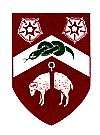Child Health in Leeds
Undergraduate Teaching (MBChB) and Medical Education
The Academic Unit of Paediatrics, Obstetrics and Gynaecology is closely involved in the MBChB course of the University of Leeds. In partnership with Bradford NHS Foundation Trust, it delivers the 2 of the 5 Year 4 Clinical Course Units (Paediatrics and Child Health; Gynaecology, Obstetrics and Sexual Health) and contributes significantly to other parts of the course. For more information about the overall MBChB course in Leeds, view the School of Medicine Course homepage or download the Course Brochure.
Year 4 MBChB consists of the following Clinical Course Units:
- Paediatrics and Child Health
- Gynaecology, Obstetrics and Sexual Health
- Psychiatry
- Acute and Critical Care
- Chronic and Continuing Care
Students rotate through these modules, each of which lasts for 6 weeks. In addition, there is a 6-week Student Selected Component (SSC) distributed across the year, to which Paediatrics, Obstetrics and Gynaecology contribute.
For the paediatric module, students have six weeks of intensive training, either in Bradford or Leeds. The first week is mainly introductory seminars and covers key areas of paediatric theory and practice. During the rest of each module, students are divided between Bradford (15-20 students) and Leeds (35-40 students) as their base hospital. Students receive regular tutorials and seminars, and are encouraged to see patients in clinics and acute areas such as the assessment units and inpatient wards. Students based in Leeds spend a week at one of our partner District General Hospitals.
A Course Management Team runs the paediatric module, responding to changes elsewhere in the course, student feedback, and developments in teaching good practice. The course consistently receives positive evaluation from students, with appreciative comments about our many enthusiastic and committed teachers. Clinicians at any stage of training are encouraged to be involved in teaching medical students.
Contacts
- Overall Course Manager for Paediatrics, and Course Lead for LGI:
- Dr Jonathan Darling, Senior Lecturer and Honorary Consultant in Paediatrics and Child Health, Leeds General Infirmary
- j.c.darling@leeds.ac.uk
- Course Lead for Bradford:
- Dr Beccy Bardgett
- Consultant Paediatrician and Honorary Senior Clinical Lecturer in Paediatrics
- Bradford Royal Infirmary
- Beccy.Bardgett@bthft.nhs.uk
- Course Administrator Leeds
- Marilyn Marston
- Tel 0113 3923905
- m.marston@leeds.ac.uk
- Course Administrator Bradford
- Margaret Bass
- Tel 01274383350
- Margaret.Bass@bthft.nhs.uk
How to get involved
There are many opportunities to get involved in our undergraduate education program. Some of these are listed below, but if you have ideas that you would like to discuss please do get in touch (see contacts).
Bedside teaching on the wards
Students are regularly placed on wards, particularly in acute general paediatrics. Please look out for them, give them a warm welcome and help them to feel part of the team. Just a few minutes of your time discussing a patient, showing how to interpret an investigation, demonstrating a clinical sign, or helping with prescribing practice make a huge difference to students’ experience.
Tutoring
Students are assigned to paediatric tutor groups in small groups of about four students. Each has a lead tutor with overall responsibility for the group, and then there are several other tutors. The main aim of the tutor system is to provide bedside teaching focused around clinical skills of history taking and examination in children. Tutors also mark students’ written case reports. All specialty trends are encouraged to be involved with our tutor program. Please do get in touch if you're interested.
Seminars
We have a programme of seminars that run through each paediatric block. Most of these are led by registrar-level trainees or consultants. Trainees in earlier years are welcome to get involved too.
Outpatient clinics
Students regularly attend our outpatient clinics. Please welcome the and wherever possible help them to be practically involved with history testing and examination skills, and discussing patients.
Workplace based assessments
Students in years 4 and 5 are loaned iPhones, on which clinical supervisors complete workplace based assessments. You will get a confirmation email for any assessment you complete. Detailed constructive feedback is most helpful to students. You can dictate into the phones if you prefer. You may also be asked to complete a multisource feedback. Students do to these within each ICU.
Technology enhanced learning
The Leeds Institute of Medical Education has considerable expertise in supporting learning and assessment using mobile technology. We are keen to develop resources to support student learning in paediatrics, and can provide technological support for this via the Technology Enhanced Learning Team. If you would like to be develop a learning or assessment package, please contact us.
Summative assessment
Students do written exams and an OSCE at the end of year four. The OSCE is usually in June or early July. In general examiners should have completed their MRCPCH exam, but we will consider more junior examiners who have been very involved with teaching. All examiners need to have completed University of Leeds OSCE Examiner training. You may also be interested in contributing to our written exam question bank. If you are interested in becoming a paediatric examiner, look out for the invitation emails (usually sent out around January) or contact the Paediatric Course Management Team.
Special projects
Research in the MBChB curriculum is covered by a strand called Research, Evaluation and Special Studies (RESS). In Years 4 and 5 the experience culminates in ESREP (Extended Student-led Research or Evaluation Project), a fantastic opportunity for medical undergraduates to conduct research, audit or management projects, which can be of their own design, or offered as part of a menu of project choices. This is a great way for clinicians and researchers to team up with enthusiastic students to do a substantial and useful piece of work. We would like to see many high quality projects in paediatrics and child health. If you would like to offer one, look out for the ‘Call for projects’ emails, contact the RESS team, or the Academic Unit of Paediatrics, Obstetrics and Gynaecology.





